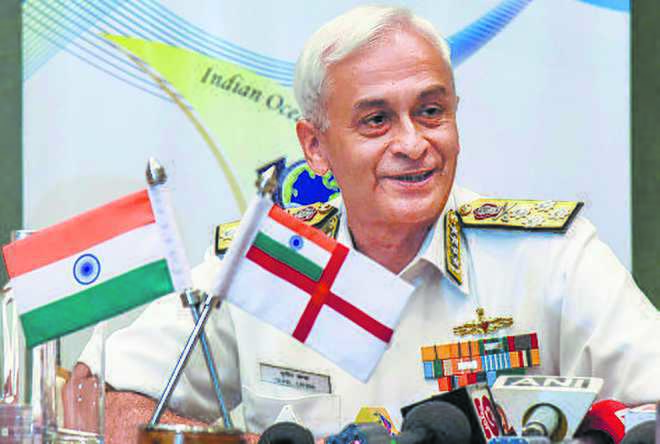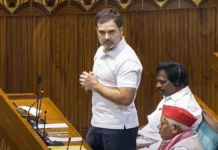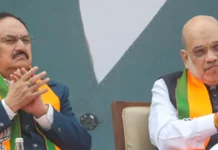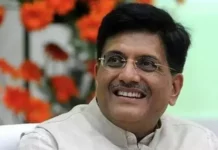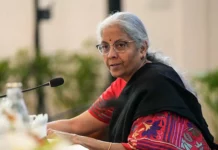NEW DELHI: Weeks after the Pulwama attack, Navy Chief Admiral Sunil Lanba Tuesday said that there are reports about terrorists being trained to carry out operations through the sea.
Addressing a gathering of global experts at the Indo-Pacific Regional Dialogue here, Lanba said the Pulwama attack was perpetrated by extremists who were “aided by a State” that seeks to destabilise India.
“We also have reports of terrorists being trained to carry out operations in various modus operandi, including through the medium of the sea,” he said.
The 26/11 attack was carried out by 10 Lashkar-e-Taiba terrorists, who sneaked into the country after hijacking an Indian fishing trawler to reach Mumbai and unleash mayhem there.
The Navy chief said this part of the world has witnessed multiple forms of terrorism in recent years and few countries in the region has been spared.
The global nature that terrorism has acquired in recent times has further enhanced the scope of this threat, Lanba said.
India, however, faces a “far more serious” version of the “state-sponsored” terrorism, he said.
“We recently saw the horrific scale of the extremist attack in Jammu and Kashmir about three weeks ago. This violence was perpetrated by extremists aided and abetted by a State that seeks to destabilise India,” the Navy chief said without naming Pakistan.
On February 14, a suicide bomber of the Pakistan-based Jaish-e-Mohammed (JeM) rammed an explosive-laden vehicle into a bus in Jammu and Kashmir’s Pulwama district, killing 40 Central Reserve Police Force (CRPF) personnel.
“We have seen how quickly terror groups evolve across the globe. And, this particular brand of terror may well become a global problem in near future,” Lanba warned.
The Indian security establishment is continuously working to address this menace, he said, noting that “it is imperative that the global community works in concert to contain and eliminate terrorism in all its forms”.
Lanba also emphasised upon the importance of the Indo-Pacific Region.
“There is a renewed focus of the world on the seas. This is principally due to the geo-economic and geopolitical significance of the maritime domain,” he said.
India is a martime nation and, recently, there have been an increasing attention to harness the potential of maritime domain for nation-building and regional development, he said.
This event seeks to “identify and contextualise numerous challenges and opportunities that lie in the waters, and evolve strategy for mutual benefits of all stakeholders,” Lanba said.
“It is widely accepted that (the) Indo-Pacific Region has been growing in geopolitical significance in recent years due to economic, political and other reasons,” he said.
Lanba underlined the region’s ancient link with India and its significance for the country.
The Navy chief also cautioned that a “re-alignment” of national priorities in some countries, “dilution of long-standing international arrangements” and changes in the global geo-economic balance have resulted in a perceived change in the global order.
“The Indo-Pacific Region holds great promise but its future is mired in the ‘shifting plates of global politics and the fault lines of history’,” hesaid.
“The growing competition among nations, if conducted in a ‘principled manner’, with respect to the core ideals of the international order, can unlock the immense untapped potential of the region for benefit of the entire world,” Lanba said, adding, “however, at present, this does not appear to be the case”.
A unique blend of strategised financial aid, creeping territorial accretion, information operations, legal ambiguity and military assertiveness is being “wielded by aspiring great powers to establish regional dominance”, he said.
This is putting the region’s historically delicate stability under renewed pressure, the Navy chief said.
He also referred to some of the projects in various countries in this region, arguably, being undertaken by foreign countries “solely to support political and strategic designs with almost no benefit to locals”.
Such projects have been further enabled by the lack of any credible alternatives, he added.
“It is, therefore, necessary to establish an environment where multiple options are available to countries seeking financial assistance, helping them to avoid getting ‘entrapped’ by those with unscrupulous designs,” Lanba said. PTI

